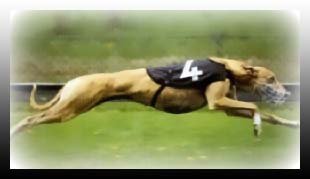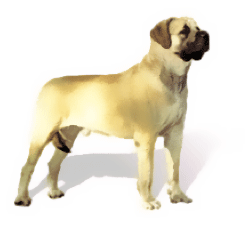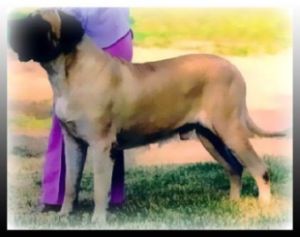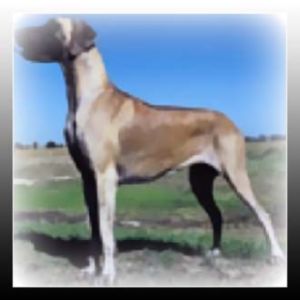About dogs - part 1
- The worlds heaviest as well as longest dog ever recorded was an Old English Mastiff named Zorba. In 1989, Zorba weighed about 155 kg and was 3,1 m long from nose to tail!
- The tallest dog on record was named Shamgret Danzas. He was 1,06 m tall (at the shoulder!) and weighed 108 kg.
- The smallest dog in history was a tiny Yorkie from Blackburn, England. At two years of age and fully grown this little dude was an incredible 6,35 cm tall by 9,5 cm long! He weighed only 113 grams! HE was approximately the size of a matchbox!
Read more!
- The oldest dog that has been reliably documented was an Australian cattle-dog named Bluey. He was put to sleep at the age of 29 years and 5 months!
- Most domestic dogs are able to reach speeds of 30.5kms per hour, when running flat out. The greyhound is capable of reaching speeds of up to 64 kms per hour!

- The tallest dogs are the Great Dane and the Irish Wolfhound. The largest Great Dane stood at 103cm and an Irish Wolfhound 100cm.
- The average city dog lives three years longer than the average country dog!
- The largest breed of dog is the Irish Wolfhound. The Chihuahua is the smallest, while breeds like the St. Bernard and Mastiff are among the heaviest.
- Dachshunds were bred to fight badgers in their dens.
- Dogs have been used as guards, hunters, draught animals, eyes for the blind, drug and explosive detectors, rodent controllers- and even weapons! In Roman times and the Middle Ages, mastiffs wearing light armour, carrying spikes and pots of flaming sulphur and resin ran into battle against mounted knights. In World War II the Russians trained dogs to run suicide missions between the tracks of German tanks with mines strapped on their backs.
- Though neutering has no effect on the overall personality, male dogs tend to display less aggression, and territorial behavior when they are neutered. They are also less likely to contract urogenital diseases.
- All breeds and sizes of dogs, from Silky Terriers to Great Danes have been caught attacking livestock. Dogs as young as 3 months of age and as old as 12 years, unsterilised and sterilised dogs of both sexes, dogs with three legs, no teeth and with the best pedigree, have been involved.
- Well-fed pets from small holdings or suburban homes near the attack site are usually responsible. A dog may attack on its own, with another dog from the same household or in the company of one or two dogs it associates with.
- Most dogs involved are friendly and approachable and do not look or behave like killers when interacting with people. This is why 90% of dog owners find it difficult to accept that their pets have killed livestock. Dogs behave very differently when on their own, away from home with other dogs or when attacking livestock.
- Chasing and attacking livestock is a normal dog behaviour. All dogs can chase, track and retrieve. They can also conclude these hunting behaviours by grabbing, biting and killing.
- Some livestock owners allow their dogs to play with or chase their own livestock. This enables the dog to gain the skills needed to attack livestock and gives it the opportunity to practice. Many of these dogs have been shot later for killing their owner's livestock, and many more have gone to other properties to attack and kill.
- Dogs will attack livestock at any time of the day or night if they are given the opportunity. Daytime attacks are especially common in semi-rural areas.
- Professional trainers will not give this guarantee if the dog is not under the control of its owner. Dogs will also chase and attack wildlife. Uncontrolled dogs and cats have destroyed many of the native animals in areas close to towns and cities. Dog owners must ensure that their dogs are under control at all times in areas where wildlife is present.
- Most dogs have been fed on meat from an early age and have already tasted blood. Dogs find chasing non-descript moving objects rewarding and this is why they are more likely to return to the scene of an attack.
- Few dogs have blood on them. Whether they do or not will depend on how the livestock was killed, whether the carcass was fed on, and what the dog did afterwards.
- Dogs are having fun, but they don't kill for fun. Several animals may be killed or mauled, but very little will appear to have been eaten. Unless disturbed, dogs will take pieces off several carcasses. Together these will make a sizeable meal for the one or two dogs usually involved.
- A frightened dog puts its tail between its legs to cover the scent glands in the anal area. Since the anal glands carry personal scents that identify individual dogs, this behaviour is the canine equivalent of insecure humans hiding their faces.

- Never assume that a barking dog won't bute, unless you're absolutely certain the dog believes it too.
- A dog who destroys your home when you're away is frustrated. His frustration has been displaced onto household objects.
- Staring directly into the eyes of a strange dog may be interpreted as a challenge and may actually encourage the dog to bite you.
- The average dog's mouth exerts 150 to 200 pounds of pressure per square inch. Some dogs can apply up to 450 pounds.





No comments:
Post a Comment